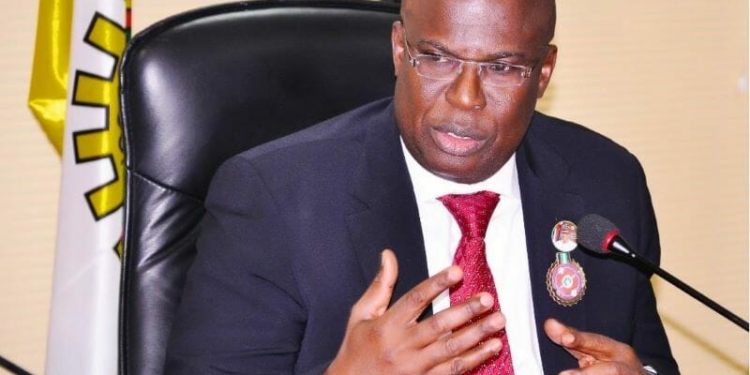The Minister of State Petroleum Resources, Chief Timipre Sylva, has explained why the federal government can’t intervene in rising kerosene prices.
Sylva pointed out that the price of kerosene had already been deregulated and could no longer be controlled by the government.
The minister made the claim at a media briefing in Abuja to unfold the achievements of the Buhari administration in the petroleum industry since the assumption of office in 2015.
The former Bayelsa State governor said: “He said: “Kerosene, which is the fuel for the average household, is already a deregulated product. It is not necessarily within the purview of the government but a now a commercial decision. Companies will import and sell kerosene at a commercial rate. It is a deregulated product”.
The latest data from the National Bureau of Statistics shows that kerosene price has risen by 145.86 per cent from N441 per litre in November 2021 to N1,083 per litre in November 2022.
Sylva expressed the hope that Nigerians would see the need for petrol to be similarly deregulated to free up funds for the government to execute other development projects.
The minister explained that it was important for Nigerians to understand that petroleum products prices are market-driven and based on the prevailing exchange rate, adding that petroleum products were still being sold at the cheapest rates in Nigeria compared to its neighbours.
While insisting that the best way to make petrol readily available for all Nigerians was through the removal of subsidies, which is not sustainable, the minister however pointed out that the government is to ensure that the price is market-driven.
“If petroleum product prices are market-driven it would drive a lot of investments. A lot of private investors want to come in and invest in the Nigerian petroleum industry but who would want to invest under a subsidy regime?
“If you build a refinery, how is your refinery going to make a profit under a subsidy regime? But if you have a market-driven situation, a lot of investors will come and the problem of access to petroleum products will be a thing of the past,” Sylva stated.
He disclosed that the rehabilitation of the Port Harcourt Refinery was on track, saying the 60,000 barrels per day component of the refinery would come on stream before the end of the first quarter of 2023.
Sylva also expressed optimism that oil production would continue to improve as security in the Niger Delta region is beefed up, insisting that the Federal Government’s target of three million per day production was realisable.
He said the government was committed to the expansion of gas development, adding that the $250 million funding from the Central Bank of Nigeria would facilitate investments into domestic gas usage in Nigeria.
The minister dismissed the notion that the new Nigerian National Petroleum Company Limited, NNPCL, which was created under the Petroleum Industry Act, PIA, was an independent company, pointing out that it remains under the Petroleum Resources Ministry.
“NNPC is not a private company; it is still 100 per cent government-owned. What has happened is that NNPC is now a commercial company and we allow it to operate commercially but it is still NNPC Limited, 100 per cent owned by the Federal Government of Nigeria and still under the purview of the Ministry of Petroleum,” Sylva pointed out.








Discussion about this post